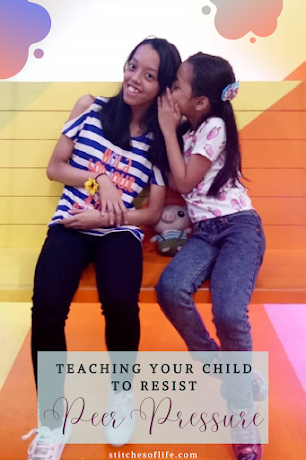Everyone wants to fit in, there is no doubt about that. The need to feel accepted and to be the same as everyone else is usually what seems to be the easiest route to happiness and a good set of friends or company. Sadly, this can be a powerful motivator that leads young children into inappropriate and even dangerous acts. Learning to resist peer pressure is something that has to be learned and doesn’t come naturally.
As a parent, you can take measures to help your child deal with peer pressure before it becomes an issue that is out of control. Advised by this private college in London, here is a guide full of strategies that can be used to help teach your child to resist peer pressure.
Prepare yourself
Discussing age-appropriate situations with your child is a great way to help them be aware of the issues that could arise in the future. For younger children, it may be making another student feel left out or teasing them. For older students, it may be skipping lessons, trying drugs, or getting involved with sexual acts. It is important to discuss the consequences as this is what will prevent them the most from getting close to this inappropriate behaviour.
Try and see yourself from your child’s point of view, and discuss how you understand that it can be tempting. Remember to provide examples of different situations so that your child will easily be able to recognize them and prepare their response. It may seem humorous at first, but role-playing is also very helpful in these types of situations.
Set rules and boundaries
If your household already has a set list of rules to follow, it will be easier for your child to avoid breaking them. Simple ground rules such as the family is a unit and everything is done as a team should be provided. Remind your child that kindness is something that should come effortlessly, and no matter who it is, they should never agree to hurt the feelings of someone else based on how others feel. If your child is faced with pressure from their peers, they can refer to the family rules that you have set in place and use them to prepare a response.
Discuss different responses together

If your child is unprepared for a situation, it is more likely that they will go along with what they are hearing. Peer pressure is a difficult thing to handle, so it is more likely that they will react way too quickly and give in out of fear. Recommend different ways that your child can get out of a situation that they feel uncomfortable in. You know your child best, if you are aware that they are an anxious person or struggle to say no, remind them constantly that there is no reason for them to have to give in to something that they do not want.
Sometimes, it can be easier for your child to avoid explaining as it can lead to a lot more pressure being added and arguments. Remind your child that a simple and repetitive ‘no’ can be the best response to peers.
The right friendship groups
Remind your child that the company they keep plays a huge role in who they are as a person as well. Encourage them to be selective when spending time with friends and to look for those who have qualities that they admire or share, such as values and ethics. Remember not to criticize your child when it comes to these situations as it can lead to them retaliating.
Take a deep breath and be calm throughout. Once you have taken the right measures, you will be satisfied knowing that your child can confidently resist peer pressure.
.png)